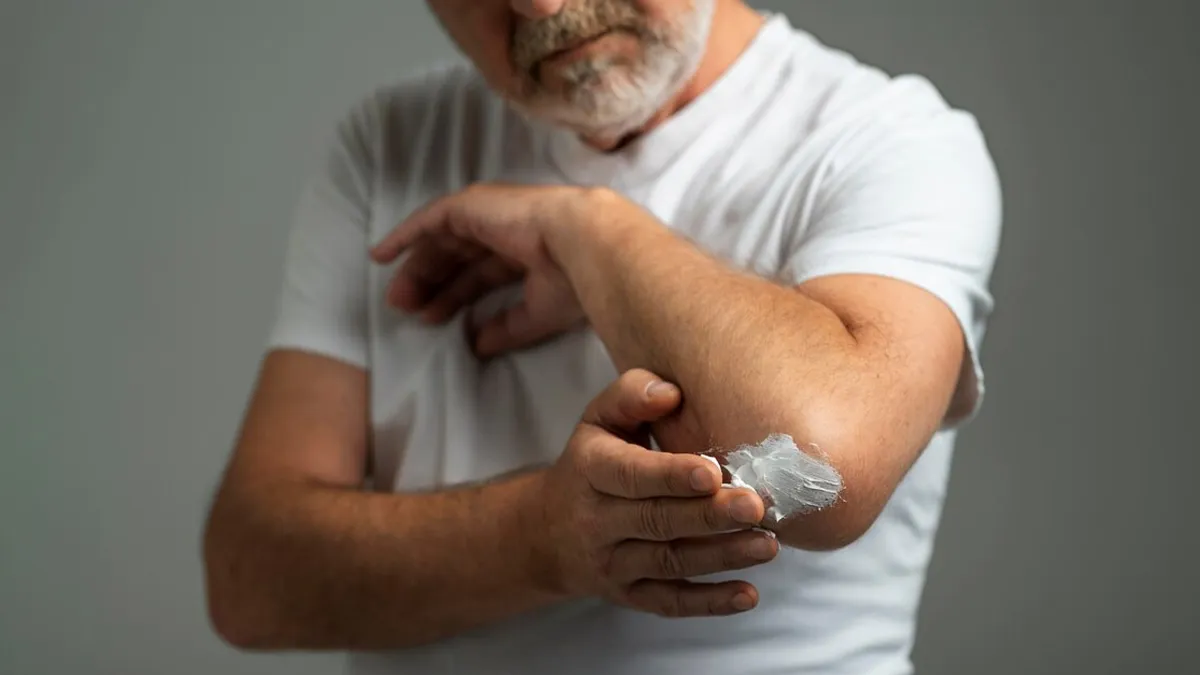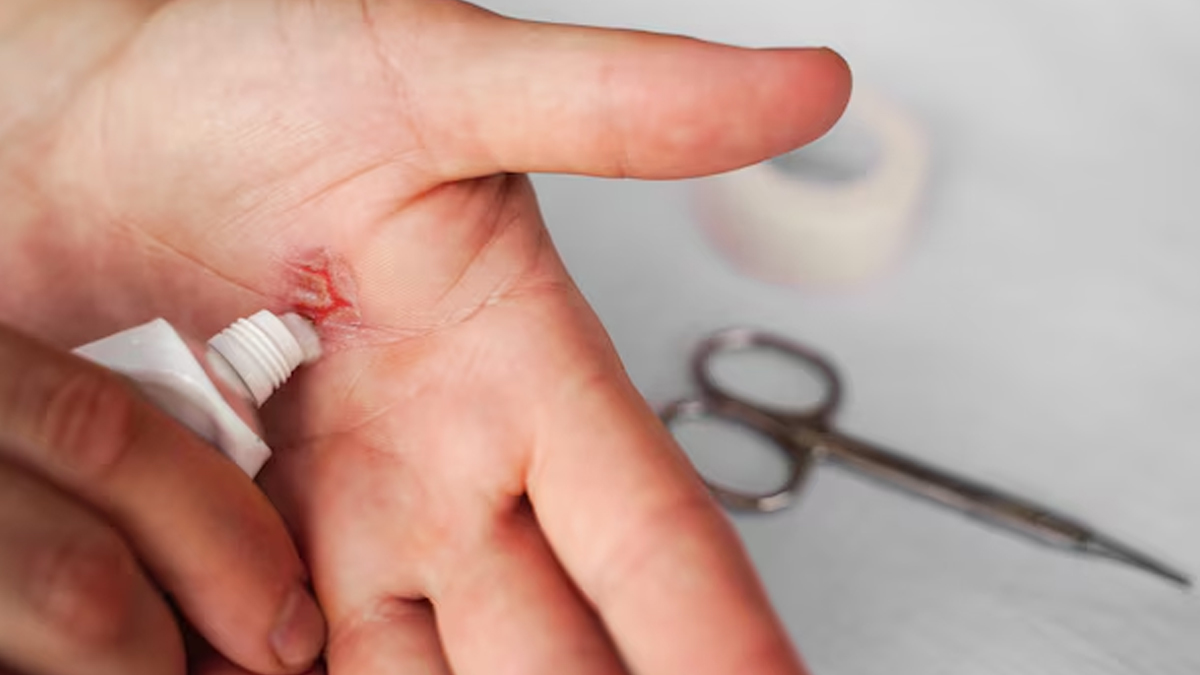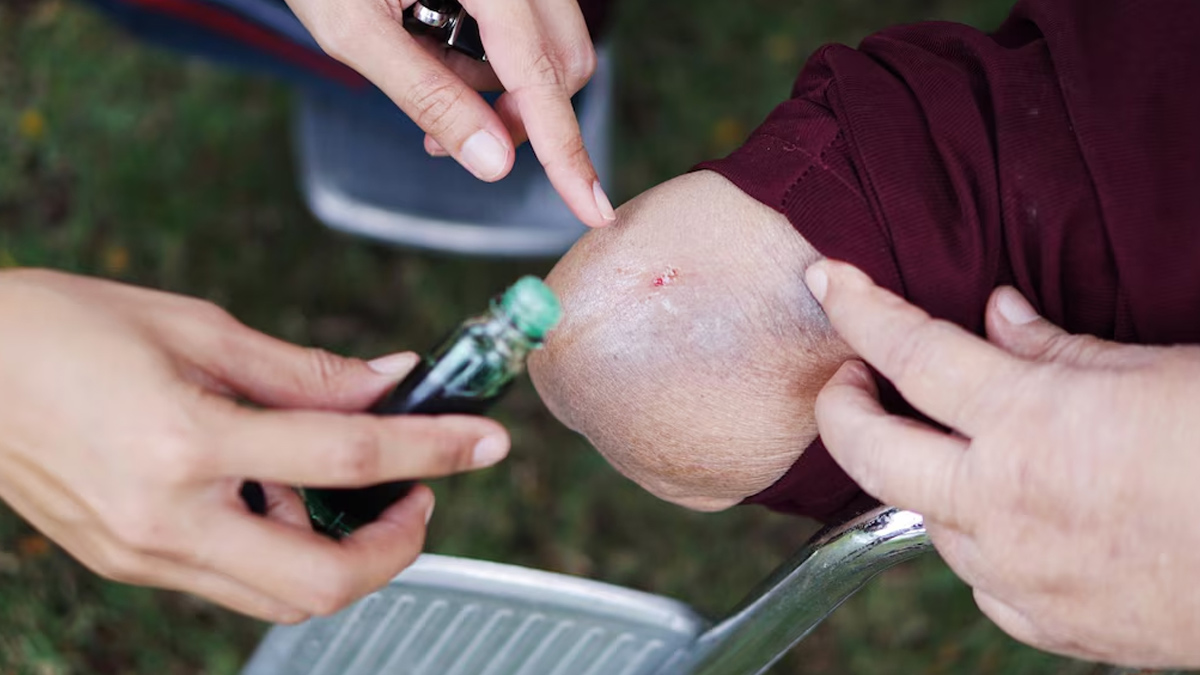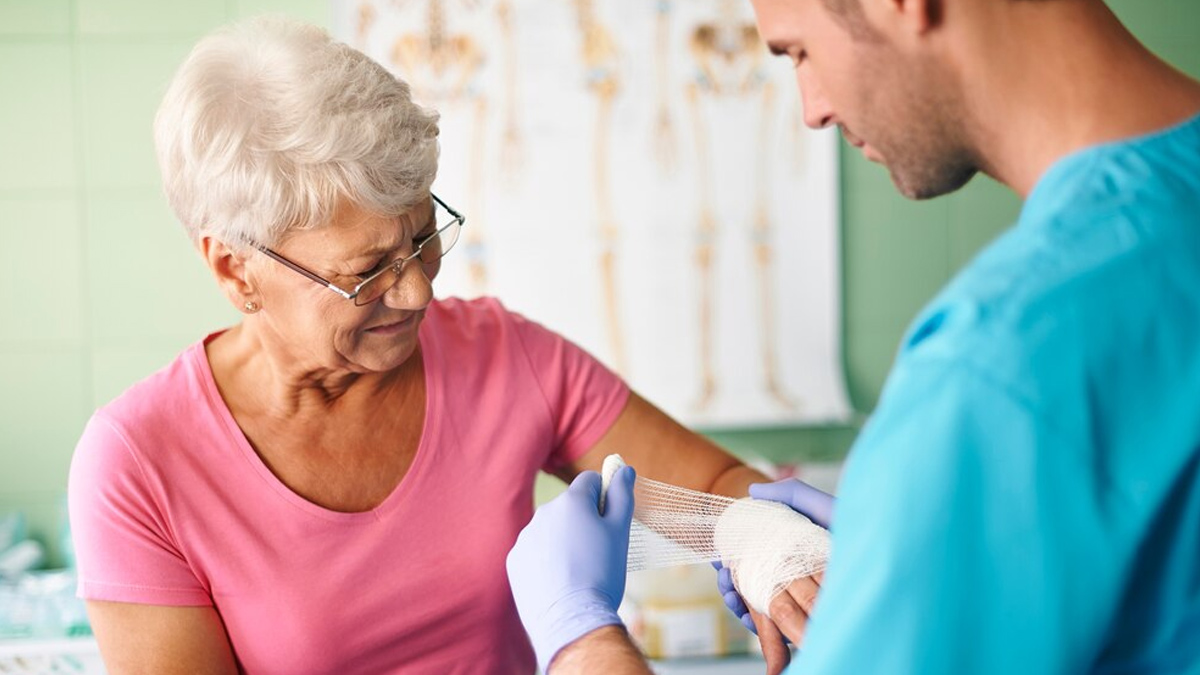
Ageing is a natural process, and so are the changes that come with it. While the most visible signs of ageing often appear on the skin, such as wrinkles, fine lines, and age spots, other changes also become noticeable over time. For instance, wounds may take longer to heal, and recovery from injuries or illnesses might require more time as you grow older. In an interaction with OnlyMyHealth, Dr Joydeep Ghosh, Consultant - Internal Medicine, Fortis Hospital, Anandapur, explains the reason behind it and shares tips to handle the same.
Table of Content:-
Also Read: Doctor Explains Advanced Wound Dressing Care For Better Healing
Why Wound Healing Slows Down With Age

"Wound healing slows down as we age because with age, a human body experiences intrinsic biological changes that leads to a reduced body’s ability to regenerate the skin," says Dr Ghosh.
Astudy published in the journal Life suggests that as we age, our skin, the body's first line of defence, becomes weaker and less efficient, which is why the skin's ability to heal itself slows down, leading to slower wound healing and increased risk of complications.
Moreover, the cells of our bodies also age, adds Dr Ghosh. He elaborates that cellular senescence is a form of cell ageing in which cells permanently lose their ability to divide. Senescent cells accumulate in the skin and many other organs as humans age, causing a variety of diseases.
Importance Of Nutrition In Wound Healing In Older Adults

According to Dr Ghosh, nutrition is important in wound healing, especially for senior adults, because it supplies the essential nutrients to repair tissue, renew cells, and boost the immune system.
He says different nutrients play different roles in the healing process, which includes:
- Proteins, essential for the repair and maintenance of tissues
- Carbohydrates, which contain the components necessary for tissue repair, cellular regeneration, and immunological function
- Vitamins A and E that are vital throughout the inflammatory phase
- Vitamin C, which aids with collagen formation
- Vitamin K, which alters proteins involved in coagulation and bone metabolism
- Minerals like zinc and iron are also required for the maximum healing of the wounds.
Also Read: Healing Wounds: Try These Home Remedies To Treat Your Infected Wounds Naturally
Steps Older Adults Can Take To Promote Faster Wound Recovery

There are a number of factors involved when it comes to faster wound healing and recovery. Some of the processes that are involved include:
- Blood clotting: Platelets form clots to stop bleeding and protect the wound.
- Inflammation: Immune cells clean the wound and protect it from infection.
- Angiogenesis: New blood vessels form to supply the wound with oxygen and glucose.
- Collagen synthesis: Collagen provides strength to the healing tissue.
- Wound contraction: In open wounds, the wound contracts to reduce the amount of connective tissue needed to fill it in.
In older adults, these processes may take time. However, Dr Ghosh shares a few steps that can help promote faster healing of wounds:
- Sustaining optimal nutrition
- Ensuring maximisation of blood circulation through physical activities and therapies and abandoning bad habits like smoking.
- Taking proper care of the wound by cleaning it regularly, changing the dressings properly, and watching for the growth of infections.
- Practising proper hygiene
- Seeking immediate medical help, if needed
Conclusion
Healing of wounds can be quicker for some people, while it can take a long time for others. Age is a factor that can affect how soon your wounds heal. Older adults should be particularly careful of their injuries, especially if they have unusual symptoms like increasing pain, swelling, or oedema; indications of infection at or around the wound site; excessive bleeding; signs of necrosis or dead tissues; and bad odour. This is when consulting a doctor is advised.
Also watch this video
How we keep this article up to date:
We work with experts and keep a close eye on the latest in health and wellness. Whenever there is a new research or helpful information, we update our articles with accurate and useful advice.
Current Version